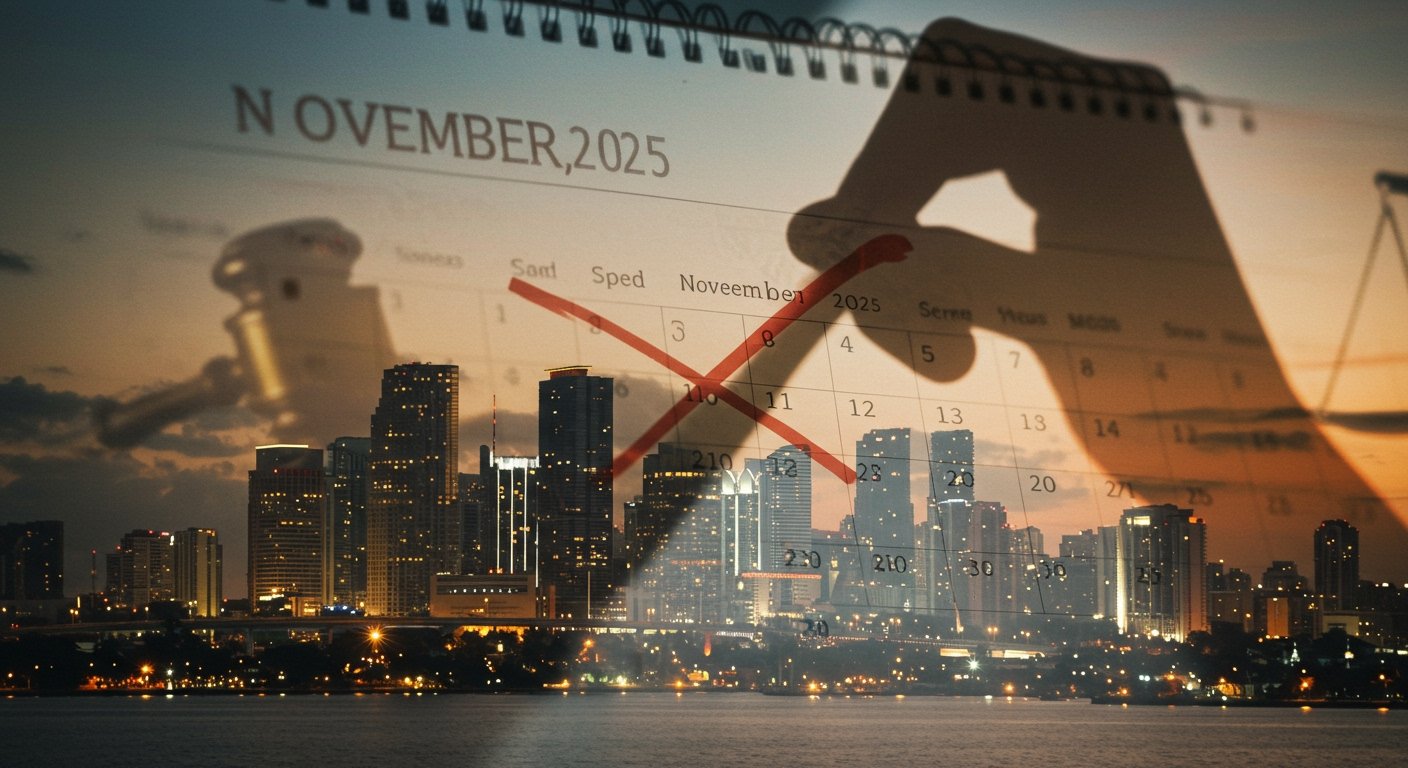MIAMI – The City of Miami has plunged into a significant political and legal controversy following a decision by its governing body to delay the next municipal election by a full year. The move, approved by the City Commission, pushes the election originally scheduled for November 2025 to November 2026, aligning it with statewide and federal contests. This shift effectively extends the terms of current city officials by twelve months, a consequence that has drawn sharp criticism from state leaders and immediately triggered a legal challenge.
The Miami City Commission gave its final stamp of approval to the ordinance on June 26, following a contentious debate that concluded with a 3-2 vote. The majority, comprising Sponsor Damian Pardo and Commissioners Christine King and Ralph Rosado, argued passionately for the change, presenting it as a necessary reform to bolster democratic participation and achieve substantial cost savings.
Rationale Behind the Election Shift
The proponents of the ordinance articulated two primary justifications for moving the election cycle. Foremost among these was the aim to dramatically increase voter turnout. Historical data from Miami’s off-year municipal elections reveal persistently low participation rates, typically hovering between a meager 10% and 15% of registered voters. By relocating the city’s elections to even-numbered years, coinciding with high-profile statewide and presidential elections, commissioners Pardo, King, and Rosado projected a potential surge in turnout, speculating it could reach as high as 60% to 70%. This alignment, they contended, would make city races more accessible and visible to a broader electorate.
Beyond the democratic participation argument, a significant factor cited was the potential for considerable financial savings. Holding standalone municipal elections in off-years requires the city to bear the full cost of election administration, logistics, and personnel. Integrating these contests into larger, pre-existing election infrastructure managed by the county and state is expected to save the city millions of dollars in election expenses over time.
State Opposition and Constitutional Concerns
The decision did not go unopposed, facing immediate and forceful resistance from Florida state authorities. Just one day before the City Commission’s final vote, on June 25, Florida Attorney General James Uthmeier issued a stern letter to the city. In his communication, Uthmeier warned that the state would not tolerate what he termed an “unconstitutional deviation” from established election norms and principles. The Attorney General’s warning signaled the state’s view that extending current officials’ terms via ordinance, rather than through a voter-approved process or constitutional amendment, likely violates the state constitution.
State leaders echoed this sentiment, expressing concerns that the move overstepped the commission’s authority and could disenfranchise voters who might prefer to cast their ballots in a dedicated municipal election focused solely on local issues and candidates, free from the potentially distracting influence of state or national politics.
Legal Challenge Launched
The controversy quickly escalated beyond political criticism and state warnings into direct legal action. On June 30, only four days after the ordinance received final approval, Emilio González, a declared candidate for Miami mayor, filed a lawsuit challenging the city’s decision. The suit was lodged in the 11th Judicial Circuit Court in Miami-Dade County.
González’s lawsuit argues that the ordinance is fundamentally unconstitutional. His filing contends that the City Commission lacks the legal authority to unilaterally extend its own members’ terms in office. Such an action, according to the lawsuit, subverts the democratic process by altering the election schedule and the tenure of elected officials without the explicit consent or approval of the city’s voters through a charter amendment or referendum.
The lawsuit seeks judicial intervention to declare the ordinance invalid and compel the city to adhere to the previously scheduled 2025 election timeline for candidate races. The outcome of this legal battle will have significant implications for the city’s political calendar and potentially set a precedent for other municipalities considering similar election scheduling changes.
Impact on the 2025 Calendar
Despite the postponement of candidate elections, the ordinance does stipulate that Miami will still hold a ballot in 2025. However, this ballot will be limited exclusively to potential charter amendments or referenda initiated by the city or citizens’ petitions. Crucially, no candidate races for mayoral, commission, or other city offices will appear on the 2025 ballot under the terms of the approved ordinance. This means that voters will not have the opportunity to elect their local representatives until the fall of 2026, barring any successful legal challenges that might overturn the city’s current plan.
Conclusion
Miami’s decision to delay its municipal election to 2026 represents a bold attempt by the City Commission to address low voter turnout and achieve cost efficiencies. However, this move has ignited a fierce debate over the limits of local governmental power, the interpretation of constitutional principles regarding elections and terms of office, and the balance between administrative convenience and democratic access. With Florida’s Attorney General issuing a formal warning and a lawsuit already filed by a prospective mayoral candidate, the future of Miami’s election calendar hangs in the balance. The 11th Judicial Circuit Court is now tasked with weighing the city’s stated goals against the constitutional rights and democratic principles at the heart of the legal challenge, setting the stage for a potentially lengthy and impactful legal process.





